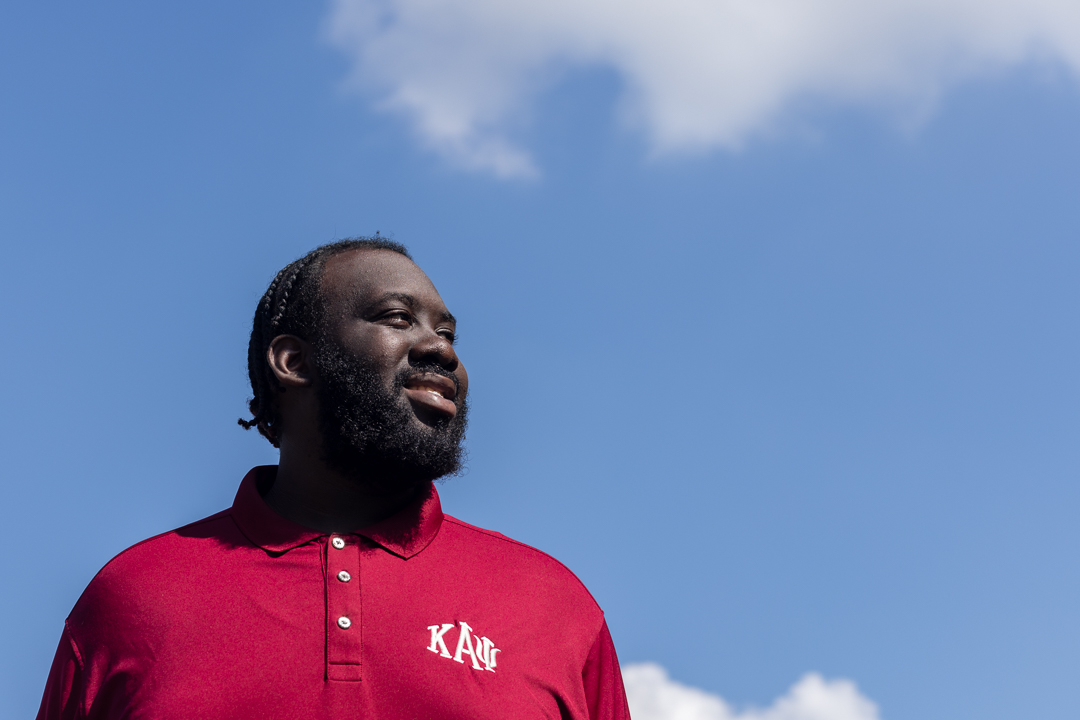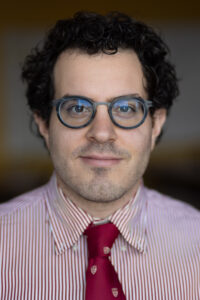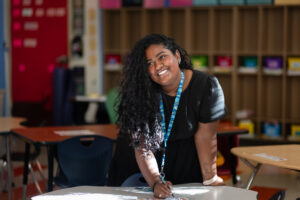When I was going into high school, I wanted to be a lawyer. That was my goal.
I got into boarding school and during my freshman year, I played football. At the end of my freshman year, they cut the football team from the whole school, because we were terrible — like, 60 to 0 terrible. In my sophomore year, during the time when I would have been playing football, I suddenly had nothing to do.
I started tutoring at a local elementary school. I really fell in love with being in the classroom and helping students. When I got there, they were reading a picture book to fifth graders — a first grade level book.
I remember bringing it up to my program coordinator like, ‘Hey, they’re reading really, really low-level books, and I’m concerned about why they are reading this.’ She told me to tell the teacher. I told him, and I thought that was the end of it. I found out a couple of years later that he ended up getting fired because he had a tendency to teach books of a low level.
Seeing those students learning below their abilities was one of the straws that broke the camel’s back and made me want to become a teacher. Throughout high school, I did different tutoring programs. I thought, ‘Maybe I am meant for this.’
I kept pursuing that from sophomore year forward: ‘I’m gonna be a teacher.’ I just kept going down that path.
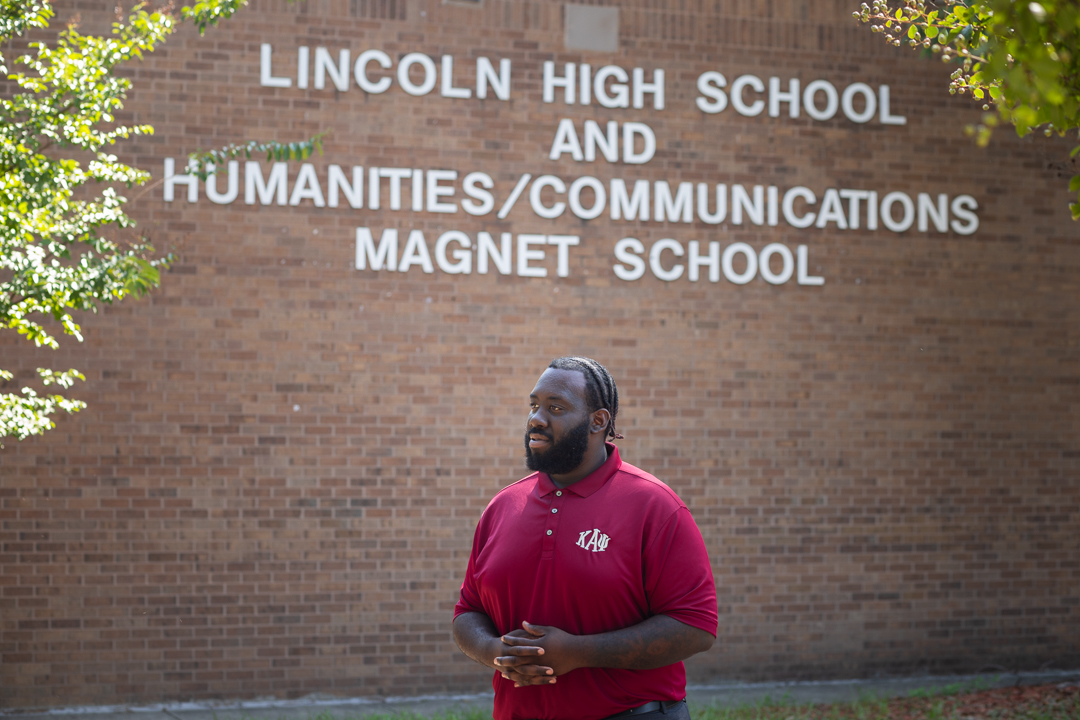
I’m hard on my students, but it’s for a reason. I’m pushing them to be better and want them to be successful. I get notes from a lot of the students that are like, ‘We appreciate how you push us and how you want us to do better.’
My expectations of students are high. They have to write and read a lot. During class, we’re working the whole 90 minutes. It’s not an easy class, and you’re going to work for it.
I recently had a situation with a student who transferred to a different school. He told me they’re doing very little work there. Here, we do a five-minute free write every day where they write for five minutes straight. He says that at his other school, they’re struggling to write half a page. My average students are writing a page or half a page at the beginning of every class.
The students respond so well to being pushed and being challenged. They appreciate it enough to write notes about it and say, ‘Thank you for having those high expectations that made me feel like I was here for a reason.’ That’s how I know I’m doing the right thing.
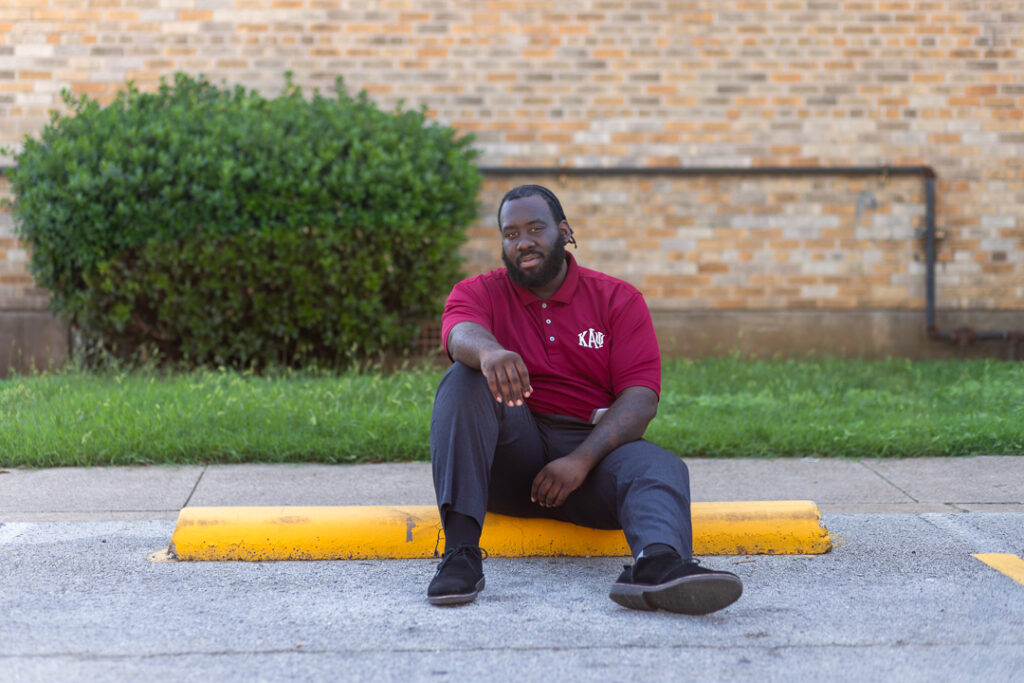
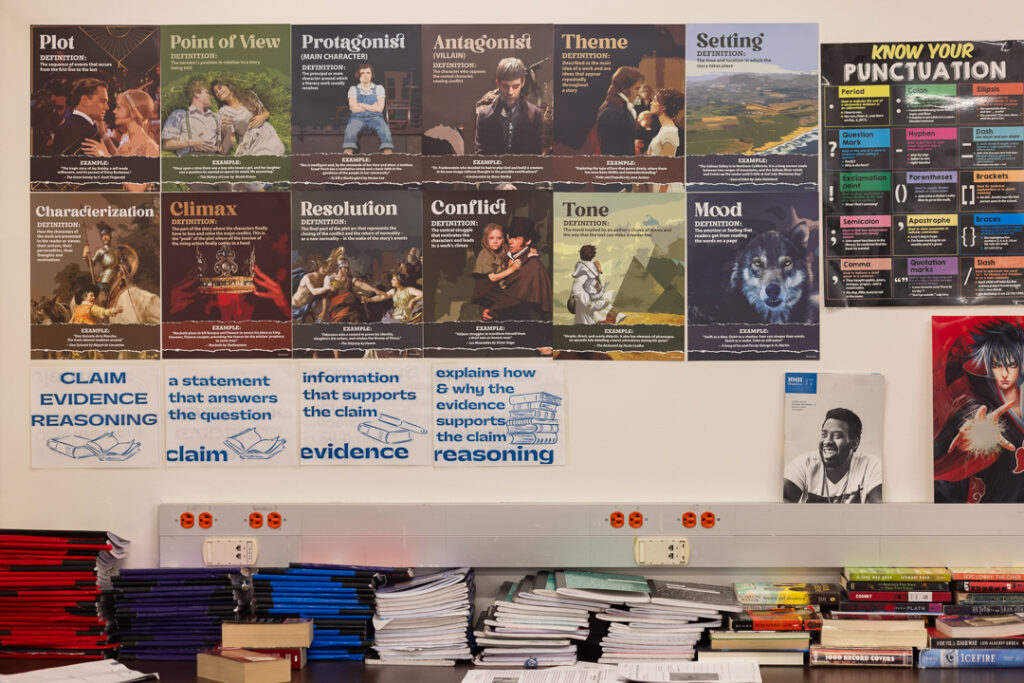
I’ve been introducing self-paced assignments more, because I’ve realized the attention span of the ninth graders is difficult for me to grasp. I do self-paced activities where they know that every time they finish a section, they can raise their hand and I’ll check it.
I give them points. I have this system, called my Varsity English Scholars. Similar to varsity football, varsity basketball, or varsity track, we have varsity English. They get points throughout the week for just doing the right thing. They finish up the assignment, they get a point. If everyone is acting up, but three kids are doing the right thing, those three kids get a point as positive reinforcement at the end.
There are ten Varsity English Scholars per class, which is the top thirty percent. They get three snacks per week that I buy for them. They get to choose the music we play in class, they get to have the first choice of free seating, and they get other small incentives for the whole week.
I separate this system from grades, because I want my students who are struggling to still feel important. I want them to know, ‘I can succeed and I can still be special, even if I’m struggling in class. It’s not just the smart kids who get to be special. All I gotta do is what I’m asked to do.’ If they take the notes, do the work, and ask questions, then they can be on varsity.
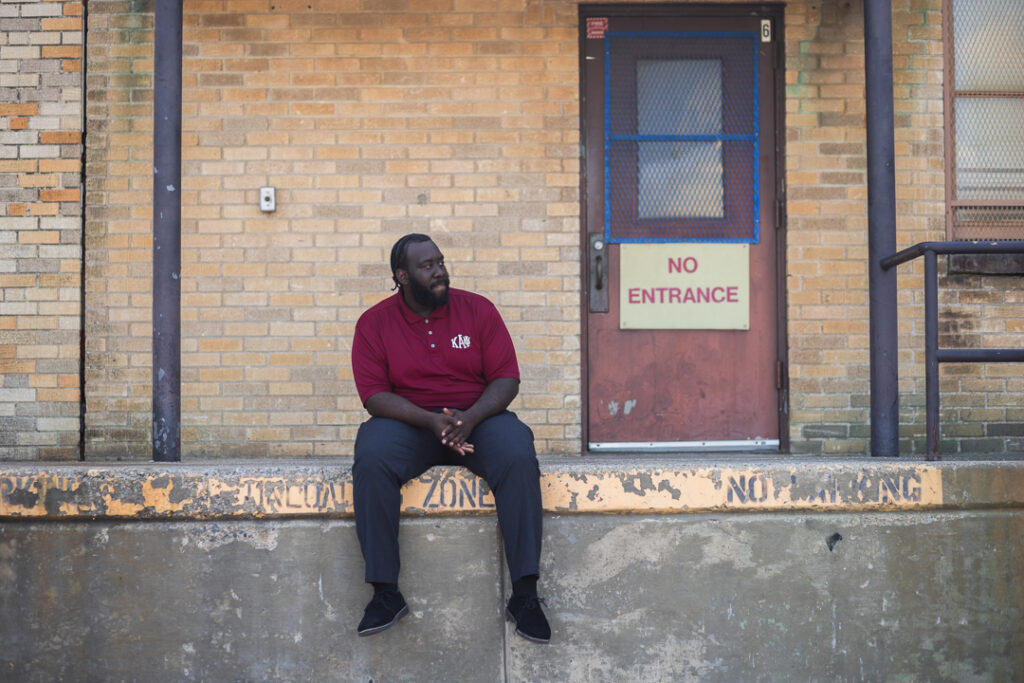
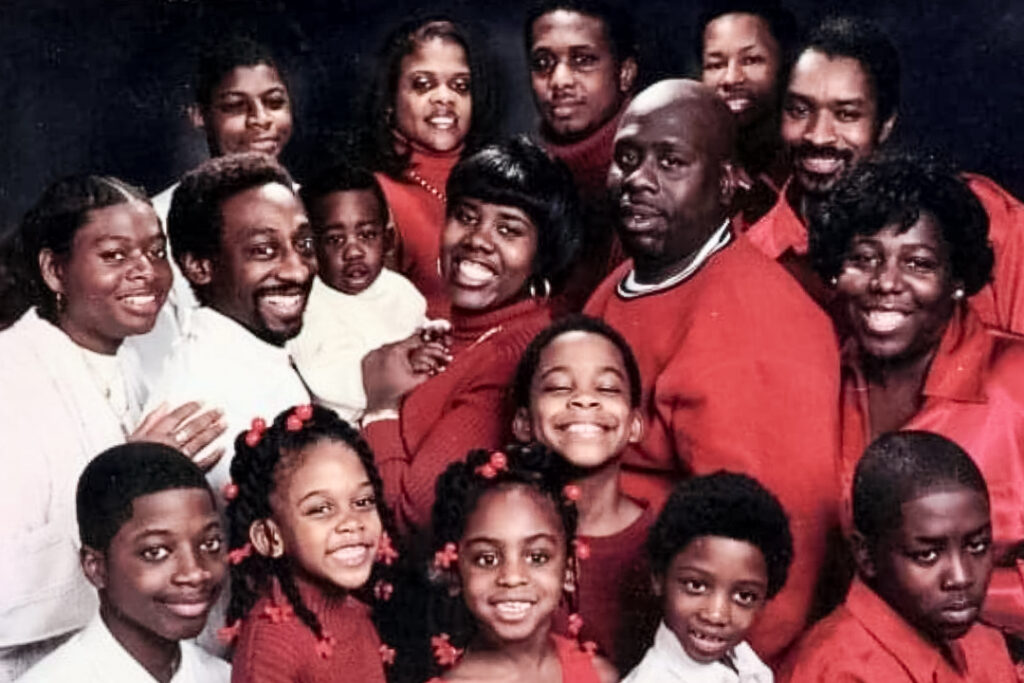
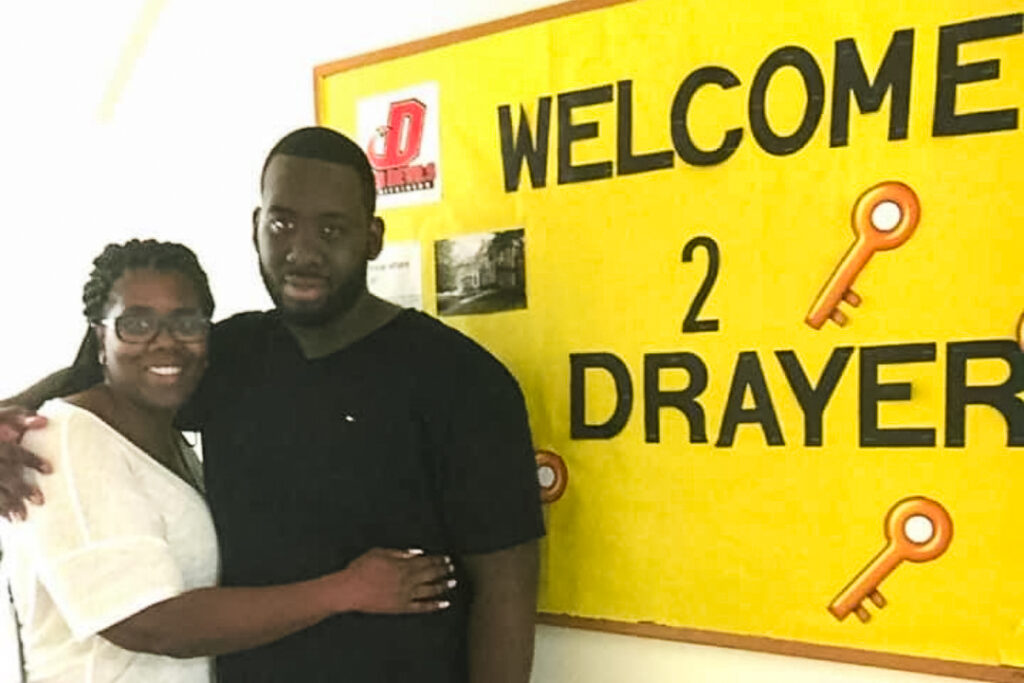
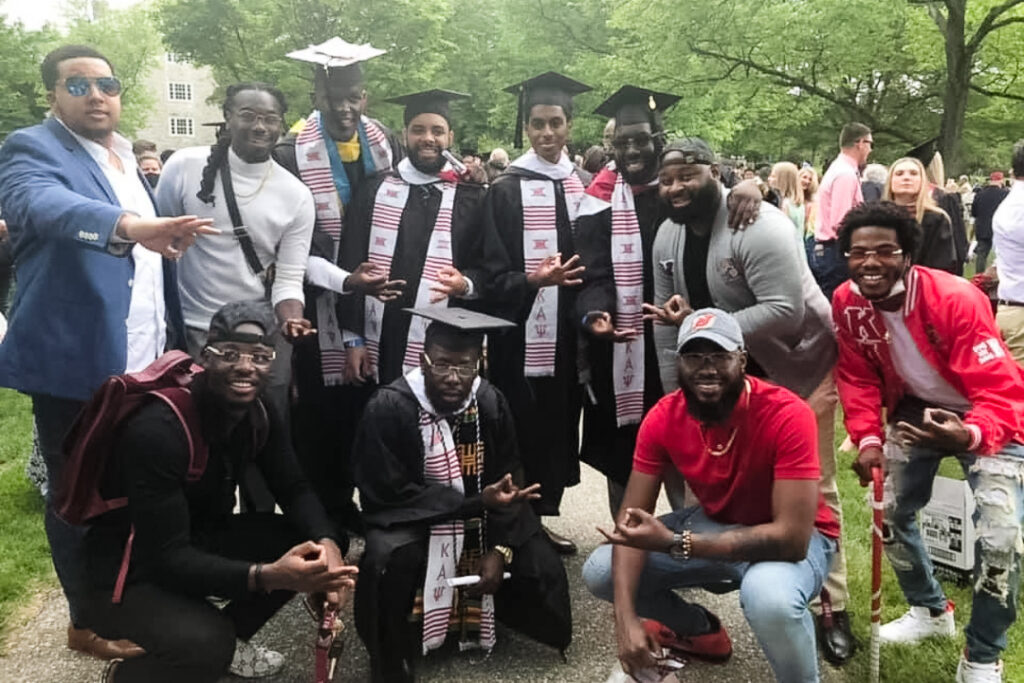
I’ve always loved to read, but my favorite subject was history. Even at Dickinson, I majored in American Studies in addition to Educational Studies. My love has always been history and culture and just learning about history in general, but also learning about how history affects us today, how different cultures operate in history, and how those things bleed together.
I think that comes from growing up in New York, where everyone is from everywhere. I used to be a bit insecure.
When I was little, all of my friends had parents from Jamaica, Trinidad, Barbados, Nigeria, or Ghana, but my family is from a plantation in South Carolina. Everyone else was from somewhere where they had this other culture to grasp on to, not just this complicated relationship with the United States.
History was really interesting to me because it helped me understand more about those feelings and where my place was — or my people’s place, and things like that. So I’ve always been drawn to history.
I’ve always loved to read, too. I would read a book a day when I was in middle school. Straight up, I would start a 200-page book in the morning, finish it in bed, and then before I went to sleep I would start a new book. I was just devouring books.
In high school, I had very different English teachers every year who all helped me develop a love for English. And in teaching English, I’m able to use my history knowledge a lot. We’ll be reading something, and I can go on a long tangent about the history of the place where it’s set, what the author is talking about, and why it’s so important, and the students will look at me with these big eyes.
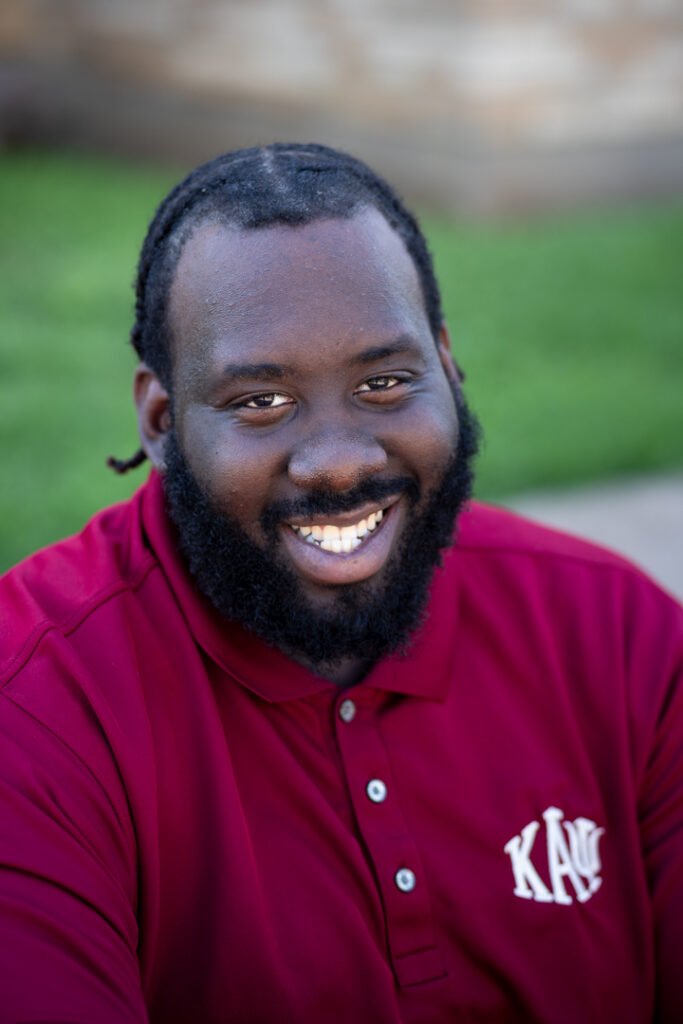
I’ve hesitated to teach history in Texas, because they’re gonna censor a lot of the history that I want to teach. I might be better off teaching English, where I can spin history into the lessons as opposed to having to teach things that I might not necessarily want to teach.
My last school was majority Hispanic, and I loved being there and learning about the culture. I was definitely interested in coming to a place where I could teach somewhere that didn’t look like the school I attended. This school is very different from the one I attended, too.
In my mind, I want to bring everything I learned outside of this system to the students in this system who don’t have access to it. I want to bring high-level English education to people who would not have access to it otherwise, because I had to leave my neighborhood to get it.
There was no one coming in and bringing that to me, when I was still in Brooklyn. I had to go elsewhere to get that.
I have kids who are super behind, who are not on grade level, and who are more than what the district has given them. I wish I had a little bit more freedom. I wish we could read novels. The district doesn’t do novel study, so we can only read short stories and poems every day.
At my last school, we read three or four novels, which I loved. I think it made it a lot easier to teach. It’s been a bit of a learning curve, not teaching a novel. It’s doable, but I have to put the work in as a teacher and I’m still getting used to the school district.
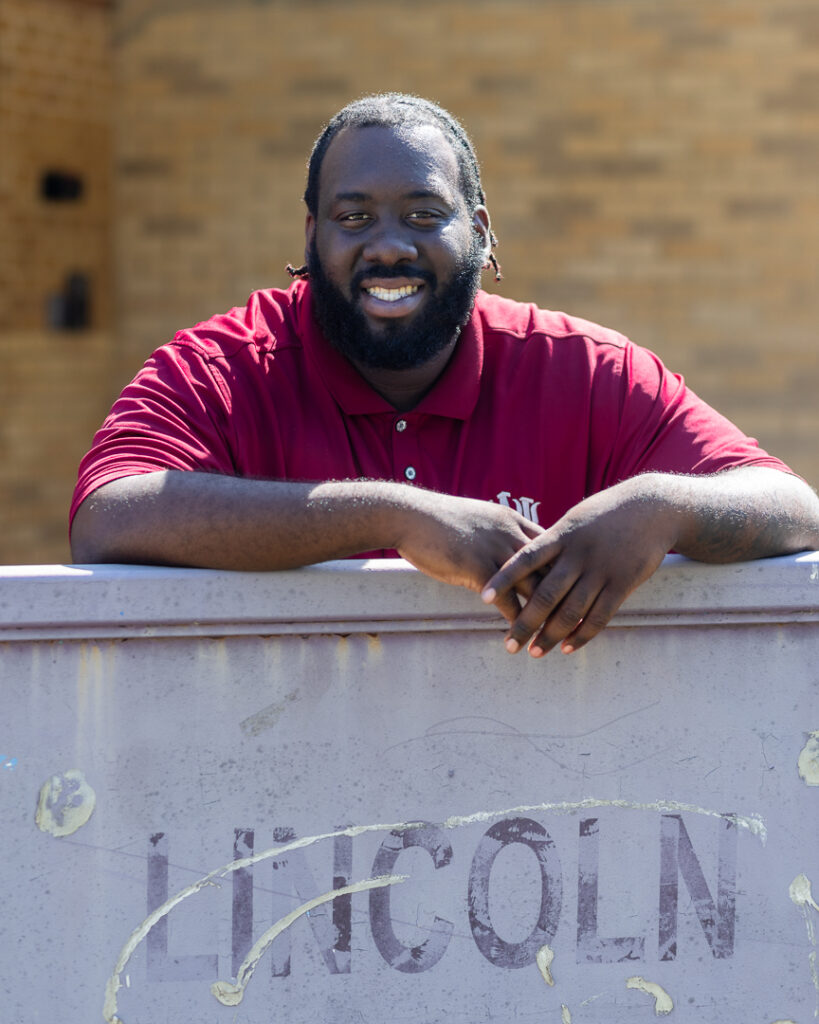
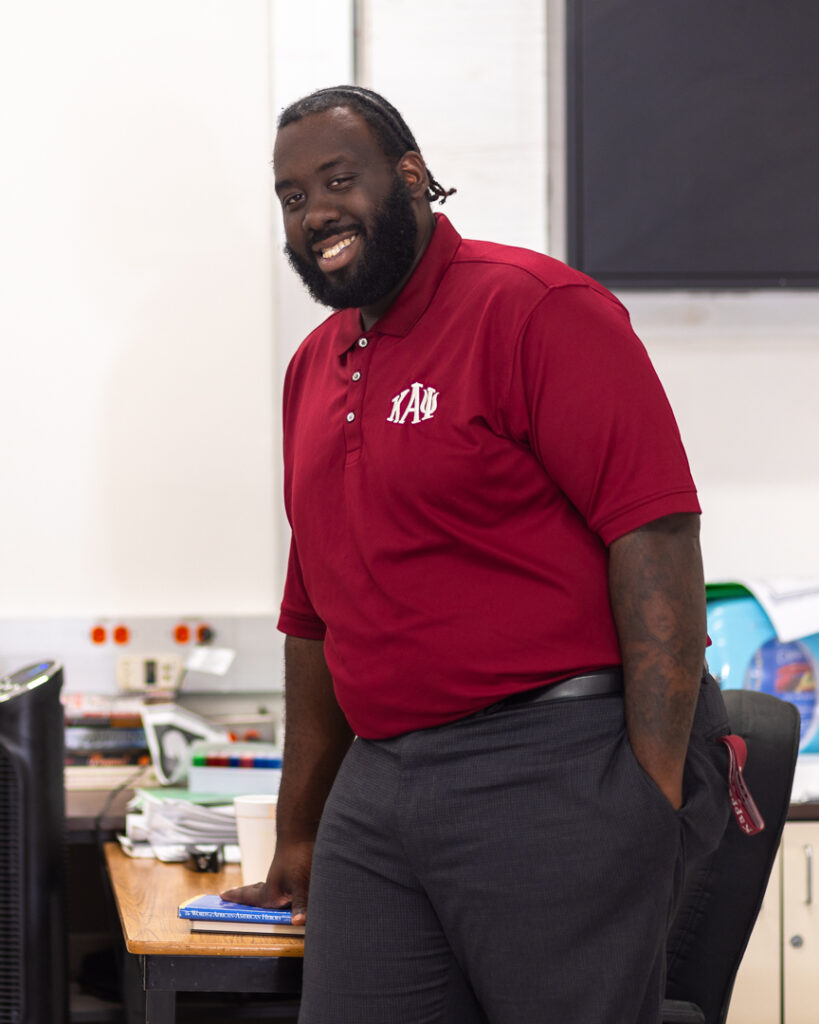
Something I’ve learned about myself is that I have a knack for finding problems, and I have a knack for trying to find ways that I can help fix them. I feel like my role at Lincoln is going to be finding ways to celebrate the students.
We don’t have an honor roll. If a kid gets straight A’s, they can’t get National Honor Society, because the schools don’t have time for that. Why don’t we celebrate them? Why don’t we do something for those kids? Why don’t they deserve something at the end of the day, like our athletes?
God knows most of these kids are not going into the NFL or the NBA. A tiny percentage of people get to do that. These kids are going to need to know how to read and write, they’re going to need to have these skills. So why don’t we celebrate the kids who are learning those skills that they’re going to use at the next level?
I’m trying to find ways to help promote academia. The school needs somebody to promote academia in a way that tells the students, ‘It’s cool to be smart. It’s important to be smart.’
I tell them, ‘I want more from y’all. You should want more for yourself. I promise you, you’re gonna get further with that book than you get with that ball.
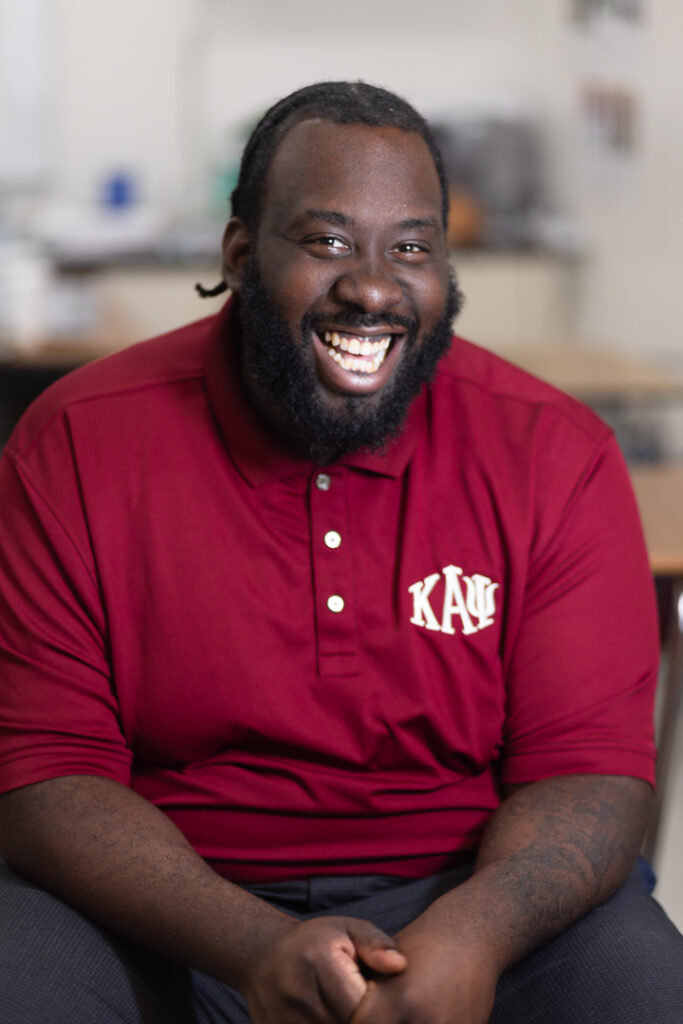
A solid number of students have college goals. The issue that I’ve seen with my students is they don’t know what it takes to get to college, nor do they know what college looks like. I had a student tell me she wanted to get her associate’s degree to be a lawyer. I was like, ‘I’m sorry, that’s not how that works.’ I had to explain two-year college vs. four-year college and graduate degrees.
I’m assuming up to this point, they’ve been told that in order to be successful, they have to go to college. They’ve been told they have to do all of these things, and they haven’t been told exactly what that means.
What worries me a lot is that I have all these students who really want to go to college. But if we’re trying to read five pages in ninth grade, that’s a lot for them. Right? I tell them, ‘If you go to college, you have to be able to read 100 pages every couple of days. You have to be able to read a set of information. We will get you there.’
We’re setting students up to be in debt, and they may have nothing to show for it. I went to school with the elite, so I know what they’re doing in ninth grade. They’re not reading five pages. They’re writing five pages. I tell them, ‘There are kids around this country, your age, writing five-page research papers right now. We need to work harder.’
It gets in their mind. What they’re thinking is, ‘You’re not taking my spot.’ You have to have that same mentality that you have on that football field: ‘This is my spot, this is my school, this is my program, I want to go there. I’m gonna take advantage of this and get the scholarship.’
Giving them that whole explanation of things is important, because they have the motivation, they have the desire, but they’re lacking the knowledge to actually be successful. And at the end of the day, there’s still the question of whether it’s worth going to college. What do they want to do when they get there, and after? College is not for everybody.
Something I’m struggling with right now is that I don’t feel I have the support that I need as a teacher. They expect you to move mountains. But nobody’s even moving a pebble for you. At times, that’s what it feels like.
At my last school, I was the only English II teacher in the building during my first year as a teacher. I did pretty well. I learned near the end of the year that my kids actually did super well. But I didn’t have the support.
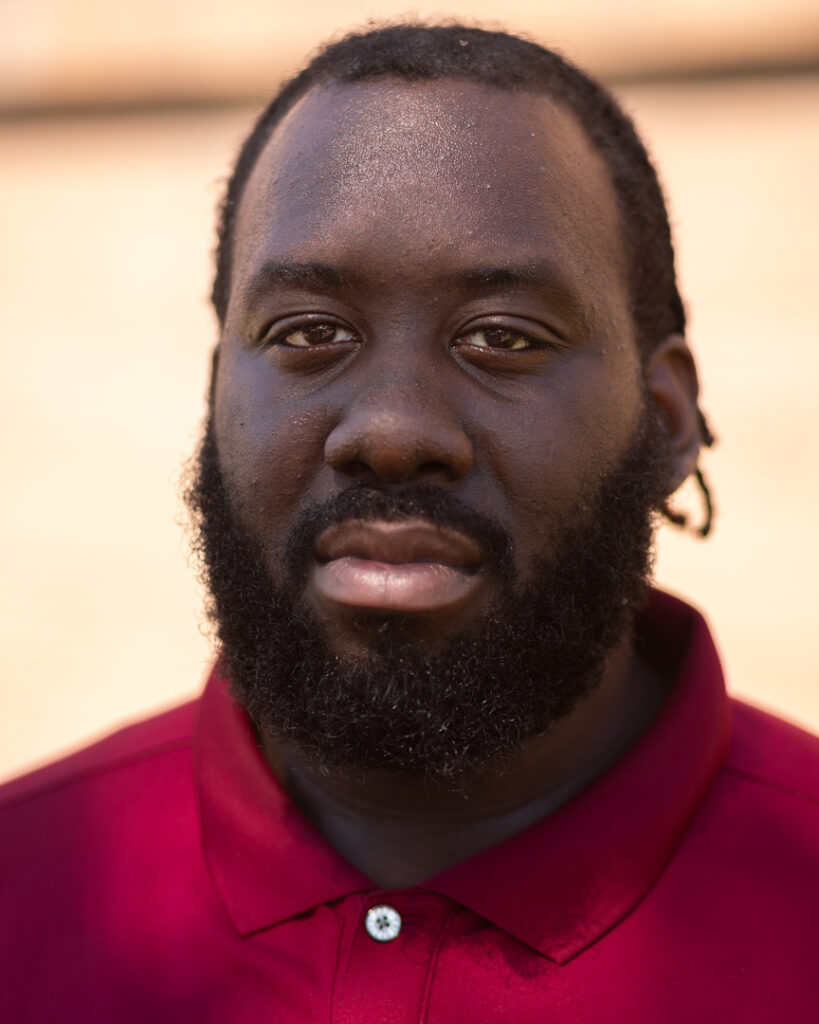
This year, I am struggling much more with behavior than I am with content. I still don’t feel like I have the support. I feel like I’m kind of left over here on the island, even though I’ve out-and-out expressed that I need help with this. I’m struggling with this.
The comments I get are, ‘It’s one of them years,’ or ‘You got a bad group.’ They give you so little, partially because the salary has been up. This is a very hard job, and you want me to have all this stuff done every single day. But you’re not coming to my aid when I need you. And I think that’s really the biggest thing that burns teachers out.
My kids are improving across the board. It’s like going to the gym or being on a team. But now I’m seeing gaps — I’m seeing where kids start off right next to each other, but Person A is putting in effort and Person B is not. Then Person A becomes much more confident, which then makes them do even better. I’m seeing students who are actively buying in or improving, so I know I’m doing something right. But some days it feels like I’m doing everything wrong.
Some days, it feels like I just can’t get right. The lessons suck, nobody is learning, and nobody cares. I’m pulling my hair out and stressing out. Then there are days where I’m seeing how students who struggled last week are now getting it. I’m seeing growth. And that is what I think keeps most teachers here: growth.
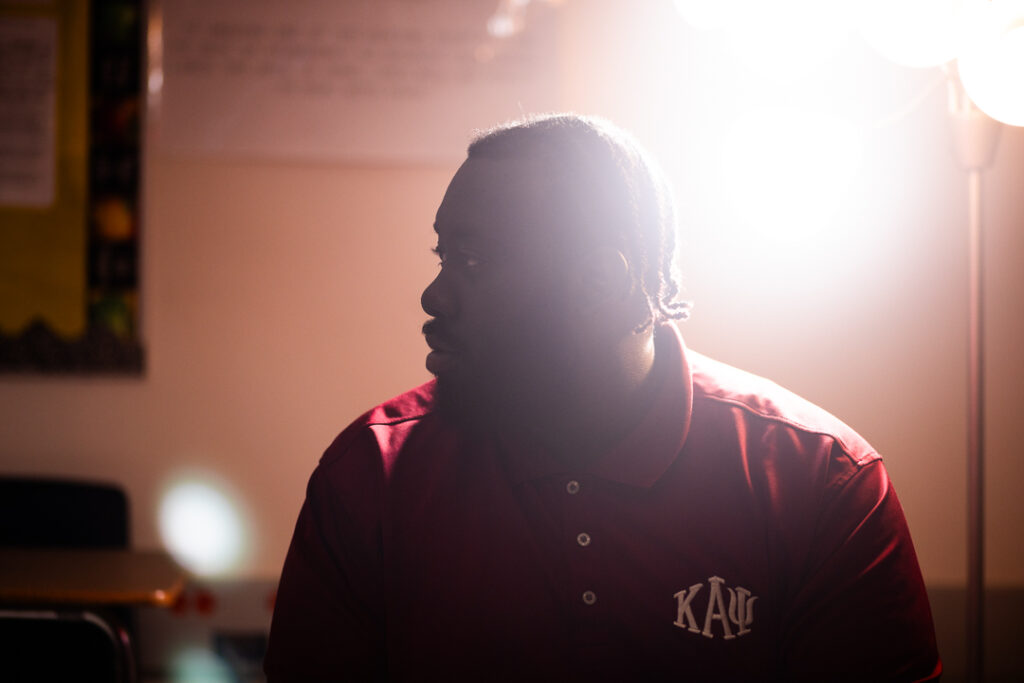
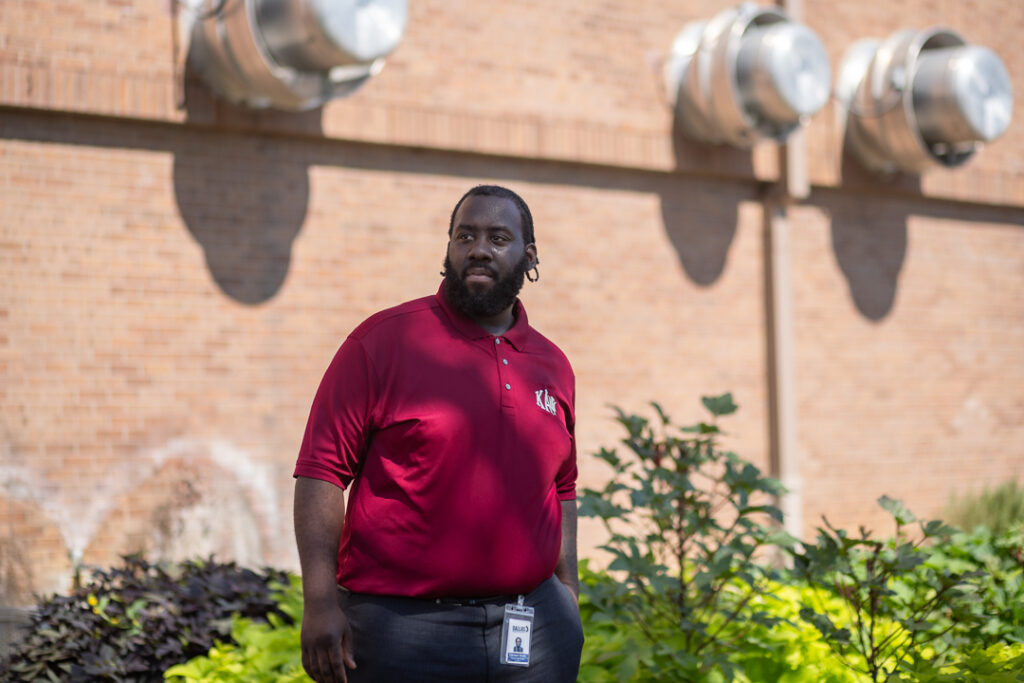
Education is in a really interesting place right now. We are coming out of such a difficult time with the pandemic. We’re seeing the effect that it had on kids, socially and academically. Anybody who’s teaching right now is still trying to figure out what post-COVID education is supposed to look like. We’re still trying to figure out, ‘What is this new era of education?’
We have this entirely digital age, where everything has looked so different from even the youngest teacher’s educational experience, and it feels so awkward. We’re the ones who have to figure out the way to make it right. If we don’t, if we kind of leave it to somebody else, if we don’t keep trying our best to find a way to find our niche and do what we can for these kids, then our future is not too bright.
I want to be part of their experience. I feel like everybody has at least one or two teachers, when they think back, where they remember, ‘Oh, I had this English teacher this one year that changed me.’ It fills me with hope, knowing that there are young people here and I made a difference in their lives, whether they realize it today or in 10 years. Sometimes it’s hard because they’re so young, and they don’t really get it. They don’t get what’s so special about their experiences that they’re having right now, but in the future, they will.
They’re gonna be fine. They’re gonna push through just like every other generation did. They’re going to get to that point where they’re adults, and they’re going to be making decisions, and then we’re gonna be good. We just gotta keep fighting.
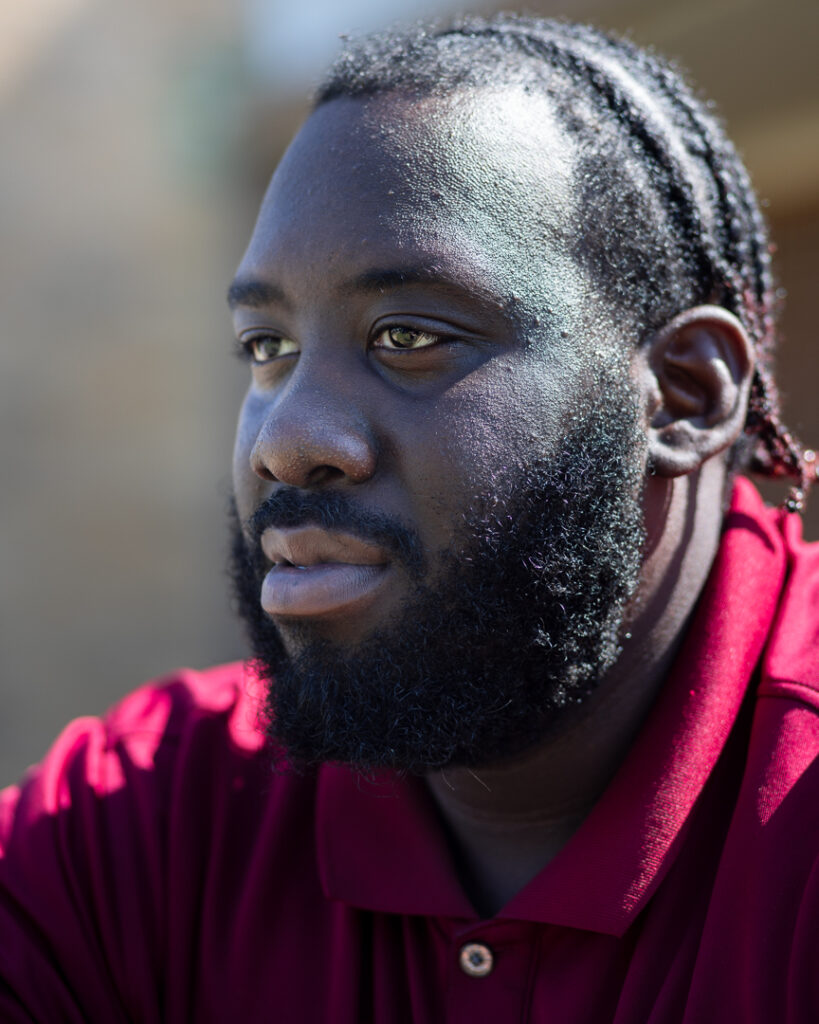
AUGUST (1 year later)
My time in the district came to an end in December of 2023. I found myself in and out of the administrators’ offices on a weekly basis as my time came to an end. I knew I had to find a way out when one of the admin put a hand in my face and raised her voice at me in front of my entire class. At that moment I knew that school was not for me.
Thankfully, I am still in the classroom. I planned to leave teaching behind altogether and move into academic or college counseling because I learned I have a passion for helping students figure out what their next step in life should be. I am currently teaching Theory of Knowledge to juniors and seniors and I have never felt more comfortable. I get to guide students through the final years of high school and aid them on their post-secondary path. But I also get to have really fascinating discussions with students about the nature of knowledge and what it means to know something.
I still find myself thinking about my Lincoln High students in DISD, and sometimes I feel like I failed them. I’ve had to come to terms with the fact that I was simply not ready for that challenge. Some days I feel like a total failure, and some days I feel like leaving saved my career. Even though my body was breaking down from the stress and I was getting sick once every two weeks, I felt like I failed them.
I felt like I put myself before my students and that is the cardinal sin of teaching.
But you can’t pour from an empty cup.
So I had to make the hardest choice of my professional career and leave my students behind in hopes that someone somewhere could pick up where I left off. For now, I can sit in my comfortable classroom, with my window, adjustable thermostat, correct number of chairs, and real teacher desk and hope my students can forgive me for walking away.
–Keshawn Bostic
High School Teacher
City Teaching Alliance Fellow, Cohort 2021
Dallas, TX
Disclaimer: Any views, thoughts, and opinions expressed by Keshawn Bostic are solely that of Keshawn Bostic and do not reflect the views, opinions, policies, or position of City Teaching Alliance.
